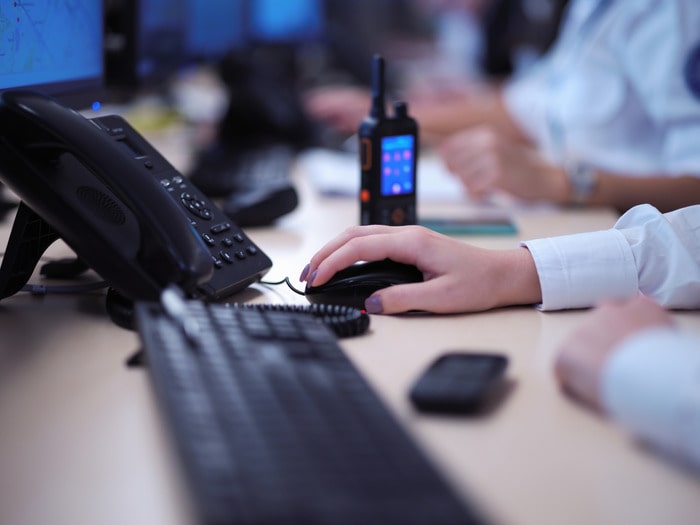
- September 19, 2023
- |security guard company
- | 0
First Aid or Medical Assistance –
Security guards are often the first responders in emergencies and incidents, making their role in providing first aid or medical assistance crucial. Whether they work in retail settings, corporate offices, events, or as vehicle patrol security guards, they may encounter situations where immediate medical attention is required.
In this article, we will explore the responsibilities, training, and capabilities of security guards in providing first aid or medical assistance. At XPressGuards, a leading vehicle patrol security guard company, we prioritize safety and preparedness, and we recognize the significance of this aspect of our security services.
The Role of Security Guards in Providing First Aid and Medical Assistance
Security guards play a multifaceted role in emergency response and medical assistance:
1. Immediate Response: Security personnel are often the first on the scene in case of accidents, injuries, or medical emergencies. Their quick response can be life-saving.
2. Assessment: Security guards assess the situation to determine the severity of the injury or medical condition and decide whether immediate medical assistance is required.
3. Stabilization: They may provide initial stabilization and basic first aid to injured individuals, such as controlling bleeding, performing CPR, or applying bandages.
4. Communication: Security guards serve as liaisons between the injured party and emergency medical services (EMS) or local authorities, relaying crucial information about the incident.
5. Crowd Control: In situations where crowds may gather around an injured individual, security personnel manage crowd control to ensure the safety of both the victim and bystanders.
Training and Certification
For security guards to effectively provide first aid and medical assistance, they must undergo specific training and certification. This training typically covers:
1. Basic First Aid: Security guards learn essential first aid skills, including CPR (Cardiopulmonary Resuscitation), wound care, fracture management, and the use of automated external defibrillators (AEDs).
2. Emergency Response: Training includes how to react to different types of medical emergencies, such as heart attacks, strokes, seizures, and allergic reactions.
3. Communication: Security personnel are taught how to communicate clearly and efficiently with EMS, law enforcement, and other relevant authorities during emergencies.
4. Legal and Ethical Considerations: Training covers the legal and ethical aspects of providing medical assistance, including consent and confidentiality.
5. Certification: Security guards often receive certification in first aid and CPR, which requires periodic renewal to ensure ongoing competency.
Legal Considerations
The extent to which security guards can provide first aid and medical assistance is subject to legal and regulatory requirements that can vary by jurisdiction. Key legal considerations include:
1. Good Samaritan Laws: Many jurisdictions have Good Samaritan laws that protect individuals who provide reasonable assistance to those who are injured or in distress from legal liability. Security guards often fall under the protection of these laws when providing aid in good faith.
2. Scope of Practice: Security guards must operate within their scope of practice, which means they should only provide medical assistance for which they are trained and certified. Attempting procedures beyond their training can lead to legal consequences.
3. Consent: In non-life-threatening situations, security personnel must obtain the injured individual’s consent before providing medical assistance. However, in cases where the individual is unconscious or unable to consent, implied consent may apply.
4. Documentation: Security guards should document the incident, the care provided, and any communication with EMS or authorities for legal and liability purposes.
Equipment and Resources
Security guards may carry specific equipment and resources to assist in providing first aid and medical assistance:
1. First Aid Kits: Security personnel often carry first aid kits containing essential supplies such as bandages, gauze, antiseptic wipes, and gloves.
2. Automated External Defibrillator (AED): AEDs are portable devices used to restore normal heart rhythms in the event of sudden cardiac arrest.
3. Communication Devices: Radios or cell phones are essential for calling for additional assistance or contacting EMS.
4. Medical Supplies: Depending on the level of training and responsibility, security personnel may carry additional medical supplies, such as oxygen masks or EpiPens for severe allergic reactions.
Best Practices for Security Guards Providing First Aid
To ensure effective and safe first aid and medical assistance, security guards should adhere to best practices:
1. Safety First: The safety of security personnel and bystanders should always be the top priority. Assess the scene for potential hazards before providing assistance.
2. Assessment: Conduct a quick but thorough assessment of the injured party’s condition, checking for responsiveness, breathing, and any life-threatening injuries.
3. Call for Help: If the situation is beyond the security guard’s training or resources, they should call for professional medical assistance (EMS) immediately.
4. Consent: In non-life-threatening situations, obtain the injured person’s consent before providing care. Explain what you intend to do.
5. Documentation: Maintain accurate records of the incident, including the care provided and any communication with medical professionals or authorities.
6. Regular Training: Security guards should receive regular training updates to stay current on the latest first aid techniques and best practices.
Security guards often find themselves in the front lines of emergencies, making their ability to provide first aid and medical assistance invaluable. Through proper training, certification, and adherence to legal and ethical considerations, security personnel can play a vital role in ensuring the safety and well-being of individuals in their care.
At XPressGuards, our commitment to safety extends beyond security patrols; we prioritize the well-being of our clients and the public by ensuring our security guards are well-trained and equipped to respond effectively in times of medical emergencies, upholding our mission to provide comprehensive security services. Contact us to learn more.


